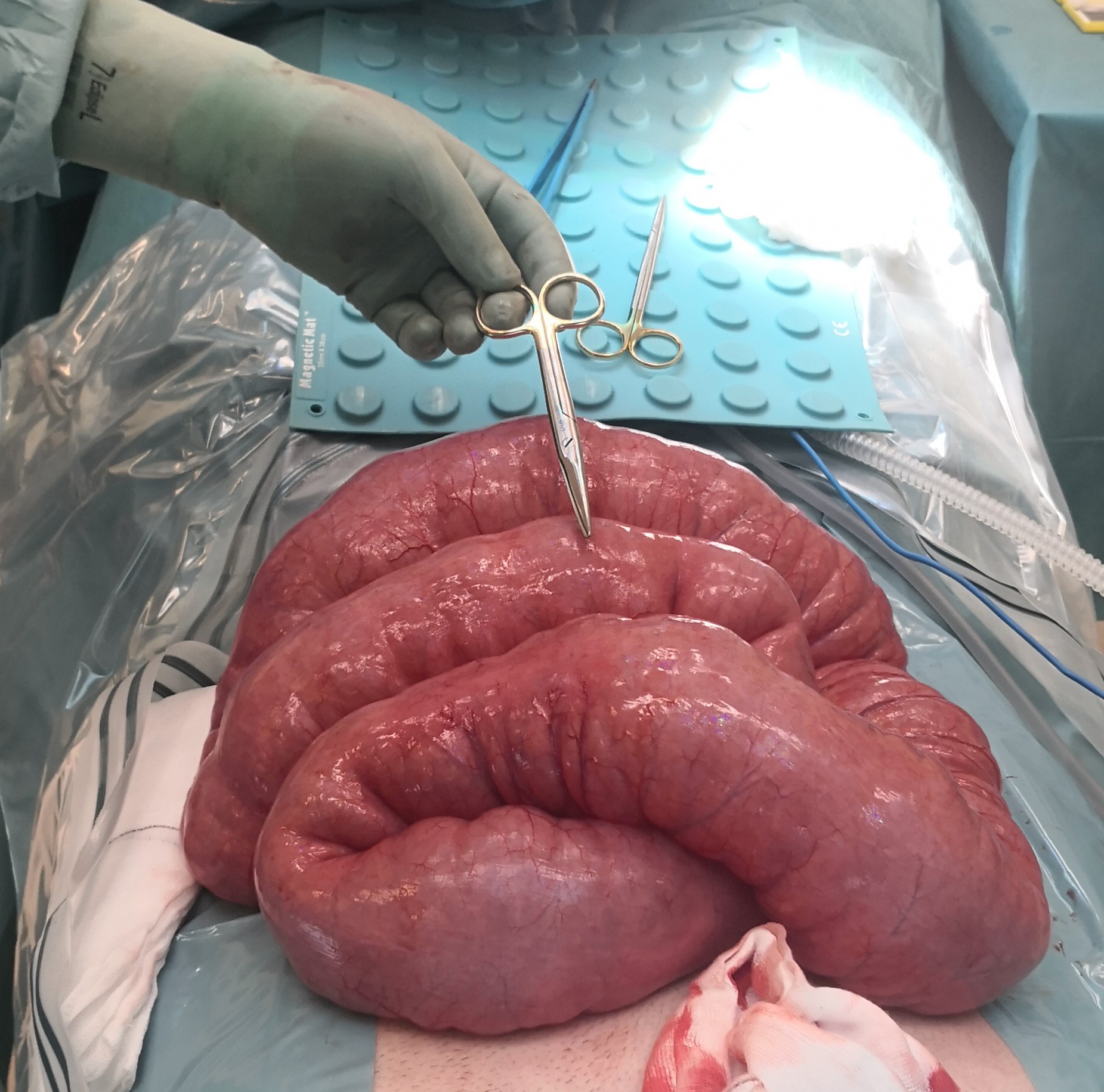The aftermath of the pandemic
Pär Myrelid, S-ECCO Member
 Pär Myrelid Pär Myrelid© ECCO |
By now we are all hoping that the cases of COVID-19 that we still see represent the beginning of the end of the pandemic. For more than two years, the health care system has been overloaded globally and the whole world has been suffering. Initially we struggled with severely ill COVID-19 patients filling up ICU wards at more or less every hospital, and in addition theatre staff were often asked to help out with COVID-19 patients rather than assisting in theatres. At some hospitals the theatres were turned into extra ICU wards. This was made easier by the fact that during the early days of the pandemic the normal emergency cases seemed to have disappeared. Just like prior to a tsunami, where the water withdraws before the giant wave hits, the emergency rooms were left empty for some days or even weeks. A deceptive calmness soon gave way to chaos.
Over the last year of the pandemic the situation has changed. Thanks to vaccines and mutations of the virus, patients with COVID-19 have been less severely ill and less in need of ICU therapy. The downside has been that the normal emergency cases have once again filled our emergency rooms and hospital beds have been occupied by patients in need of emergent medical or surgical help.
The extreme load of emergency cases over this two-year period has had an enormous effect on the capacity to perform elective surgery, such as resections for Crohn’s Disease or restorative procedures in Ulcerative Colitis. In the United Kingdom the waiting list for any kind of scheduled surgery has increased from 4.4 million patients prior to the pandemic to six million patients earlier this year (https://www.england.nhs.uk/coronavirus/wp-content/uploads/sites/52/2022/02/C1466-delivery-plan-for-tackling-the-covid-19-backlog-of-elective-care.pdf). Similarly, a report from the OECD (https://doi.org/10.1787/b0118fae-en) shows that there has been a steep increase in waiting lists for hip or knee replacements, for example. In Sweden the National Board of Health and Welfare reports an annual drop of seven percent when it comes to elective gastrointestinal surgery. This may not sound much but it means that 9366 patients were put on a waiting list rather than having their surgical procedure, just during the first year of the pandemic (https://www.socialstyrelsen.se/statistik-och-data/statistik/pandemins-effekter-pa-varden/analys-uppdamda-vardbehov-efter-pandemin/). Apart from the increasing waiting time for each individual patient, this impact of COVID-19 means that an increasing number of patients are now on the waiting list and, worse, that there is an increased inherent risk of more severe disease. When it comes to restorative surgery in Ulcerative Colitis the problem is mainly an impaired quality of life for a longer period of time, while patients with Crohn’s Disease may experience emergency situations with obstructing or penetrating disease while waiting for surgery. Apart from the suffering, this may lead to more complicated surgery, the need for stomas (and a subsequent second procedure), more complications and longer hospital stays. And this in a situation already characterised by lack of scheduled theatre rooms and hospital beds.

© Linköping University Hospital
Figure showing a long-standing obstruction in a patient with Crohn’s Disease who was placed on enteral nutrition at the beginning of the pandemic in preparation for surgery. At the time of delayed surgery, more or less the complete small bowel was dilated to a width of around 12 cm (the length of the scissors). Because of the dilated small bowel, the patient received a temporary stoma (not yet reversed) and also had a prolonged hospital stay due to postoperative ileus (published with the permission of the patient).
Adding to this dark situation, many colleagues around Europe have been reporting on resignations by nurses and theatre staff, which are creating an even greater backlog of patients and increasing the workload for remaining staff on wards and in theatres. The previously mentioned OECD report found that close to half of the health care workers in Italy exhibit symptoms of post-traumatic stress syndrome and one‑quarter symptoms of depression. Similarly, in Spain close to three‑fifths report symptoms of anxiety and/or post-traumatic stress disorder and close to half symptoms of depression. It is not difficult to understand the fatigue among hospital staff due to such prolonged physical and psychological strain. This period has now been replaced by a backlog of severely ill patients who we know are suffering greatly – patients about whom we care a lot. Knowing that in theory one could more or less easily help them to achieve a more worthwhile life but not having the resources to do it makes the pressure on health workers even worse.
One way forward is to work together in trying to find new ways of dealing with our surgical IBD patients, bearing in mind that our patients are not the only ones suffering on a waiting list. Sometimes one hospital may have a good staff situation within one surgical field but difficulties within another, while a neighbouring hospital is experiencing the opposite situation; this opens the possibility of sending patients and/or staff between hospitals. Any idea that may help the situation, without increasing the medical risks, is welcome and will hopefully be shared within our IBD Community.
The most important factor, however, lies beyond the influence of our way of working in daily practice and is in the hands of politicians and/or hospital administrators. Hospital staff are well worth the daily evening rounds of applause that were seen across parts of Europe, but this is not enough. In order to persuade them to stay within the health sector and to encourage those who have already left to return, we need to make them feel appreciated. Appreciation is achieved by increasing the status of the profession, usually in association with a decent salary and acceptable working hours. In order to break the vicious circle of increasing workload/diminishing staff we need to increase the incentive to work in the health sector. This will cost, but not doing so will cost even more, both financially and in terms of the impact on patients’ lives and quality of life.


